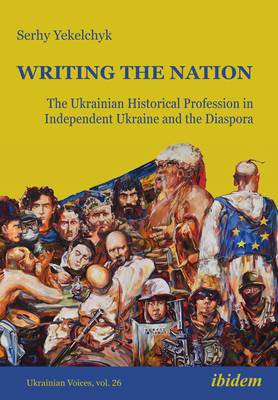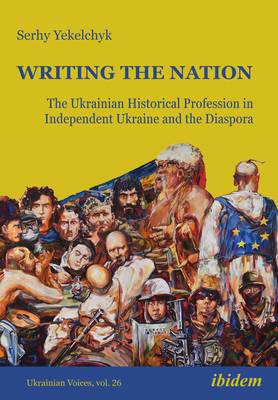
- Afhalen na 1 uur in een winkel met voorraad
- Gratis thuislevering in België
- Ruim aanbod met 7 miljoen producten
- Afhalen na 1 uur in een winkel met voorraad
- Gratis thuislevering in België
- Ruim aanbod met 7 miljoen producten
Writing the Nation
The Ukrainian Historical Profession in Independent Ukraine and the Diaspora
Serhy YekelchykOmschrijving
Serhy Yekelchyk analyzes the uneasy post-Soviet transition in Ukrainian historical writing. He discusses the challenge of transcending not just Soviet ideological dogmas, but also the "Soviet" way of understanding historical processes and human actions. Two major factors have been influencing this transition: contacts with the Ukrainian diaspora and the "rediscovery," also facilitated by the diaspora, of long-suppressed Ukrainian historical scholarship from the early twentieth century. However, the diaspora was more than the keeper of pre-Soviet historical narratives. By the early 1990s, it had professional historians practicing modern historical approaches, which also made an impact on the Ukrainian historical scholarship. Yekelchyk explores the application of Post-Colonial theory to Ukrainian and diasporic writing on the central problem of Modern Ukrainian history, that of nation building. He also highlights new--transnational and cultural-history--approaches to the study of Ukrainian history.
One of the book's most important conclusions concerns the global character of present-day Ukrainian historiography, with scholars originally from Ukraine and those of non-Ukrainian background playing an increasingly prominent role in the West, and Ukrainian-based historians actively participating in Western projects, publications, and debates.Specificaties
Betrokkenen
- Auteur(s):
- Uitgeverij:
Inhoud
- Aantal bladzijden:
- 200
- Taal:
- Engels
- Reeks:
- Reeksnummer:
- nr. 26
Eigenschappen
- Productcode (EAN):
- 9783838216959
- Verschijningsdatum:
- 21/03/2023
- Uitvoering:
- Paperback
- Formaat:
- Trade paperback (VS)
- Afmetingen:
- 145 mm x 208 mm
- Gewicht:
- 317 g

Alleen bij Standaard Boekhandel
Beoordelingen
We publiceren alleen reviews die voldoen aan de voorwaarden voor reviews. Bekijk onze voorwaarden voor reviews.












